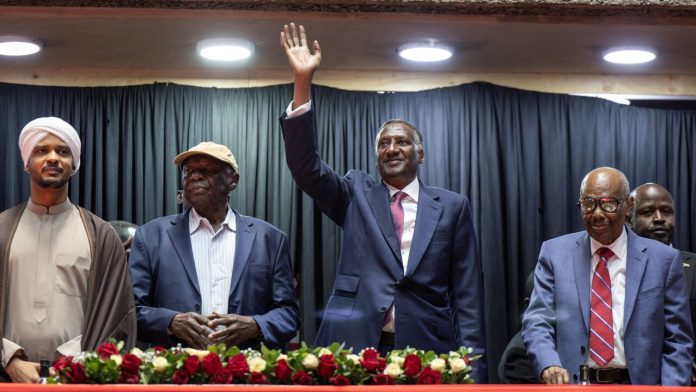Facebook Twitter Instagram Somali Magazine - People's Magazine
Kenya’s foreign ministry has reiterated its commitment to peace efforts in Sudan after Khartoum accused the country of violating its sovereignty. The accusation came after Kenya hosted a meeting of Sudan’s paramilitary Rapid Support Forces (RSF) in Nairobi, drawing sharp criticism from Sudanese authorities.
In a statement, Sudan called Kenya’s decision to host Tuesday’s meeting an “act of hostility,” especially as it preceded an expected announcement by the RSF of a parallel government. The meeting, held at the government-owned Kenyatta International Conference Center, was led by RSF Deputy Commander Abdel-Rahim Hamdan Dagalo. He stated that a significant political announcement would be made on Friday.
Kenya has defended its position, emphasizing its history of facilitating dialogue among conflicting parties. The foreign ministry noted that Kenya has long hosted Sudanese refugees and engaged in regional peace efforts without ulterior motives. However, this stance has sparked controversy, with some experts warning of diplomatic repercussions.
Macharia Munene, a professor of international relations at the United States International University-Africa, criticized Kenya’s move, calling it a “foreign policy blunder.” He argued that the country risks diplomatic isolation due to what he described as a one-sided foreign policy approach. According to Munene, President William Ruto’s close ties with RSF leader Mohamed Hamdan Dagalo, known as Hemedti, may be influencing Kenya’s stance on the Sudanese conflict. Although Hemedti was not present at Tuesday’s meeting, his brother has met with President Ruto on several occasions, reinforcing their political relationship.
Sudan has been embroiled in conflict between the national army and the RSF for nearly a year, leading to a devastating humanitarian crisis. According to the United Nations, over 24,000 people have been killed, and more than 14 million—nearly 30% of Sudan’s population—have been displaced. Around 3.2 million Sudanese have fled to neighboring countries, seeking refuge from the ongoing violence.
Sudanese authorities reported that recent RSF attacks resulted in over 400 civilian deaths, including infants. They claimed the attacks were a reaction to the RSF’s recent military defeats at the hands of the Sudanese army. The escalating violence has deepened divisions in the region, making diplomatic intervention even more complex.
Amid these tensions, some experts and activists have urged regional governments to remain neutral. Haydar Abdul Karim, a Sudanese peace activist and freelance journalist now living in Kenya, stressed the importance of impartial mediation. He warned against countries supporting the formation of new governments or political alliances, arguing that this could further escalate the conflict. Instead, he called for increased international pressure on both warring factions to engage in negotiations.
Kenya’s involvement in the Sudanese crisis highlights the broader geopolitical struggles in East Africa. While Kenya has historically positioned itself as a regional peace broker, its latest actions have sparked debate over whether it is overstepping its role. The close relationship between Kenya’s leadership and the RSF could further complicate diplomatic relations, both with Sudan and the wider international community.
Despite the criticism, Kenya remains steadfast in its approach, reiterating its commitment to fostering dialogue. The coming days will be crucial in determining whether the RSF follows through with its announcement and how Sudanese authorities and international actors respond. The outcome of these developments could significantly impact the trajectory of Sudan’s conflict and the broader stability of the region.

